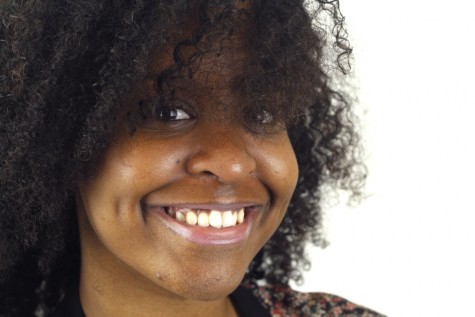Workshop on Arabic brings cultural understanding
April 26, 2016
Economics professor Ahmed Abou-Zaid shared his native language with students and faculty at the “Teach Me Arabic” workshop.
During the session, Abou-Zaid taught his crowd common greetings and objects like seat, table, pen and short directions. He also described some of the differences between English and Arabic.
A lot of the times, in the Arabic language, pronouns are not used because the word and phrases make them clear. Abou-Zaid said there is no one word for anything in the language.
In the lesson, Abou-Zaid explained how the pronunciation of words could be hard for someone who has not spoken the language since they were younger. He demonstrated to the audience the sounds that were hard, and they tried them out.
With Abou-Zaid being from Egypt, he said that Arabic is spoken in 22 countries, but with different accents. The most unique thing about the language would be the multitude of dialects, he said.
“These things give me a chance to talk to the people and to introduce my culture,” Abou-Zaid said. “We learn from them, they learn from us and that is the beauty of it.”
The Arabic language has 28 characters with some carrying similar sounds. Abou-Zaid said in the language they also read right to left as oppose to the American culture’s way of reading.
Writing Arabic formally is different than how the language is orally, Abou-Zaid said.
Erin Hagan, a senior foreign language major, said she plans to learn Arabic in the near future and thought the workshop would be a good introduction to the language. She said the hardest thing may be learning how to write and speak Arabic because they are different.
“(Arabic) is a critical language and any culture that has a lot of history, especially things that dates back as far as seven thousand years, is fascinating,” Hagan said. “ It’s interesting to see how language evolves and how things change.
Abou-Zaid mentioned that Arabic is one of the oldest languages in history.
Hagan said the workshop brings real awareness to another culture. She said far too often, people generalize cultures and fail to look at the facts and that culture’s history.
“Events like this make people look beyond mass media and generalizations and realize that these are people,” Hagan said. “This is a culture, a history and one event should not determine an entity of people.”
Tarvaris Gould, a freshman pre-engineering major, said people need to venture out and experience different nationalities and language. He said it is always a good skill to be observant of others’ cultures.
“It was interesting to learn how one word could mean many things,” Gould said. “ I was always taught that English was the toughest language.”
Gould said he thinks that learning Arabic full-on will not be as hard as he thought.
Hagan said language is such an evolving thing and people could never fully understand the culture if they are not familiar with their language.
“Dialects tell you what someone culture is like,” Hagan said. “It’s all about learning to appreciate other people’s cultures and learning to think beyond our own westernized idea of this is America and we are the best.”
While cultures can be sparsely different, those dissimilarities should not be frowned upon, Hagan said. She said it is a matter of knowing that diversity add substance to culture, not takes from it.
“The biggest part for me is going to be the disparity between how you speak and how you write,” Hagan said.
T’Nerra Butler can be reached at 581-2812 or [email protected]















































